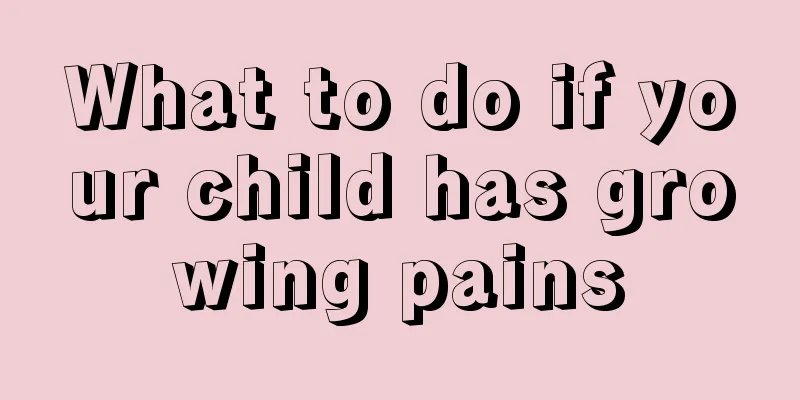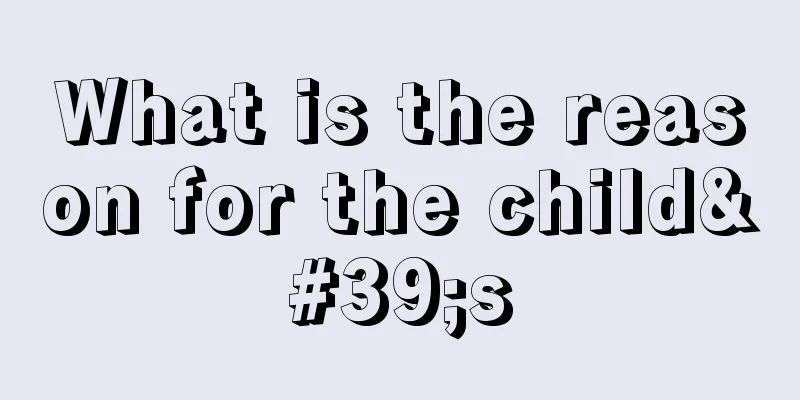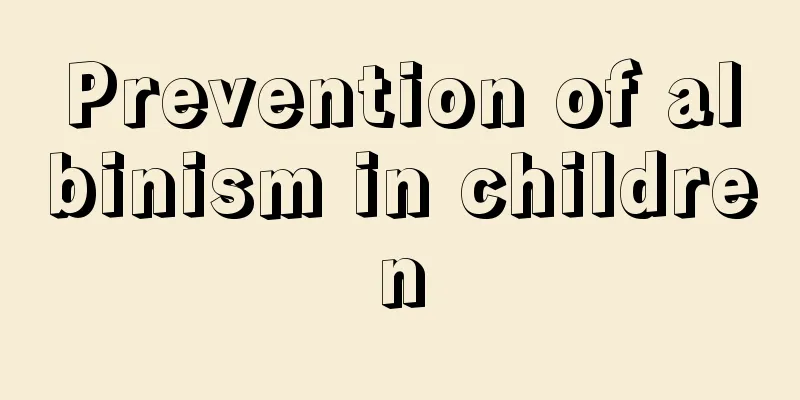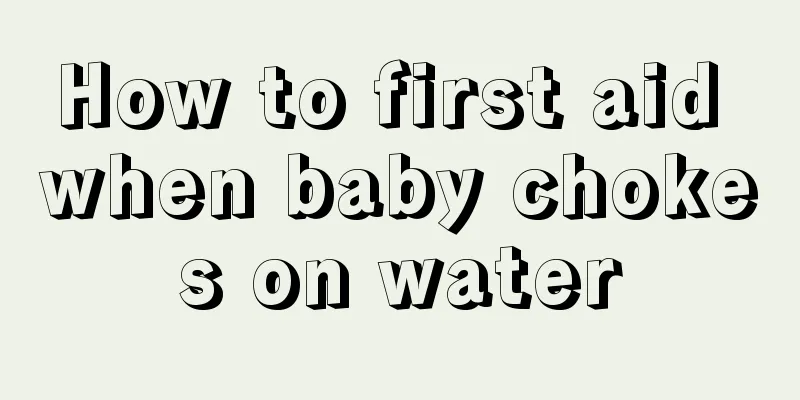What are the common causes of drooling in 3-year-old children?
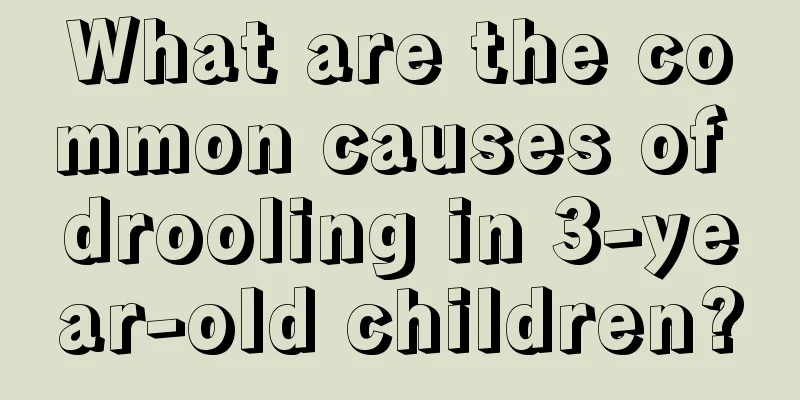
|
Family members are very concerned about their children. If the child has a little illness, the adults will take the child to see a doctor. Some children like to drool, and parents think that this is a big problem, so they take the child here and there to get medicine for the child to drink. But is it normal for a three-year-old child to drool? What are the reasons that cause children to develop the habit of drooling? 1. It is okay to drool during teething. As the baby's deciduous teeth gradually erupt, the drooling phenomenon will gradually disappear. 2. Oral herpetic pharyngitis: The baby has persistent fever and has red herpes ranging from 1 to 2 mm in size around the oral mucosa and uvula (commonly known as the tongue). 3. Suffering from hand, foot and mouth disease: manifested by sudden onset of disease, high fever, body temperature mostly above 38 degrees, accompanied by headache, cough, runny nose and other discomfort symptoms. 4. Lack of B vitamins or trace element zinc: The tongue and oral mucosa ulcerate into aphthous ulcers, usually without fever, anorexia and recurrent attacks are a characteristic. Children's drooling, known in written language as drooling, is mostly a normal physiological phenomenon. When the baby is about 4 months old, he or she will gradually transition from breast milk to some complementary food. The stimulation of food on the nerves and salivary glands will increase saliva secretion. When the baby is 6 to 7 months old, the baby's deciduous teeth erupt, and stimulation of the trigeminal nerve will also increase saliva secretion. In addition, children's oral cavity capacity is small, and they cannot swallow or regulate the saliva in their mouths, so the saliva will flow out naturally after accumulation. As the baby grows older and the teeth gradually erupt, drooling will stop on its own and generally does not require treatment. If a child still drools when he grows up, it may be due to poor neurological or endocrine development, inflammation in the mouth, and indigestion, etc., which must be diagnosed and treated. We know that it is normal for children to drool, but what we need to pay attention to is that every time the child's saliva flows onto the skin, we'd better use a handkerchief or wet wipes to wipe the child, so that the child will feel more comfortable. It is best to wash the areas where the drooling is more. |
<<: What should I pay attention to if my 3-year-old baby drools while sleeping?
>>: What should I do if my 3-year-old child drools?
Recommend
What happens when children have fever and diarrhea?
Nowadays, various common pediatric diseases are t...
It turns out that baby ginger water bath has such effects
Ginger is a common food in the kitchen. Ginger ca...
What are the benefits of cod liver oil supplement for babies
Babies are the future of every family. People now...
Recipe for 10-month-old baby
The growth and development of a baby cannot be se...
Baby hydrocele surgery process
Hydrocele often occurs in infancy, but it may als...
What causes intestinal turmoil in children?
It is inevitable that people will encounter disea...
What causes baby's eye bags to swell?
The first thing to consider when your baby’s swol...
Four-month-old baby's brain development
For four-month-old babies, they have just started...
Do children need to fast for physical examination?
When we take a new job, we need to have a physica...
What should I do if my two-month-old baby's jaundice has not subsided?
Nowadays, many newborns have symptoms of jaundice...
What will a five month old baby do?
It is difficult for every baby who has just come ...
Is it normal for babies to have a lot of eye discharge?
A baby is just born into this world. It is really...
One-year-old baby suddenly cried at night
One-year-old babies are still ignorant and cannot...
What is the reason why the baby does not cough during the day but coughs at night?
As the saying goes, nine out of ten babies cough!...
Can children's tuberculosis be cured?
Pulmonary tuberculosis is the most common type of...
